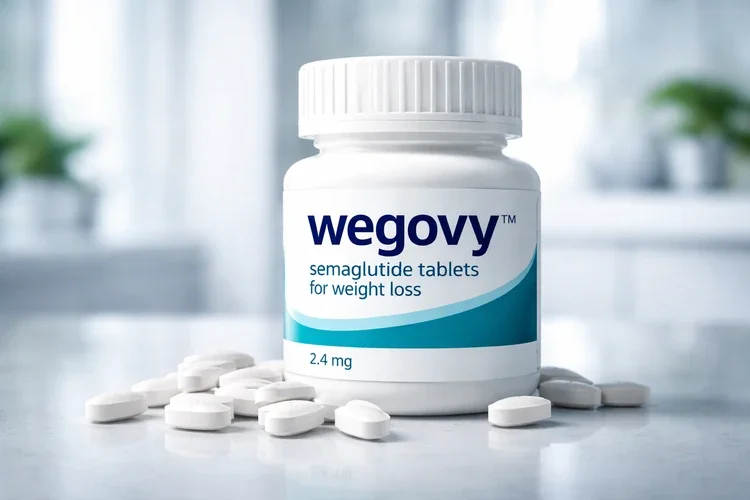Weight Gain During Menopause Part 2 - What Can Be Done?
In part one of this series about menopausal weight gain, we discussed the reasons why women tend to put on weight during perimenopause and menopause. Now let’s discuss what to do about it. Many of the variables that impact weight gain during this phase of life can be modified by focusing on what you eat, how you move your body, and determining if medications and/or hormone therapy might be right for you.
A FOUR-PRONGED APPROACH
1. DIET & NUTRITION
Your changing metabolic rates, loss of muscle mass and loss of hormones can all impact the way you burn energy and store fat. Changes in metabolic health mean that your body becomes prone to insulin resistance. You have less flexibility and tolerance to unhealthy foods - especially those high in carbohydrates and sugar. This means that you will likely tend toward more weight gain, especially around the midsection and organs.
Many of my patients have had great success with intermittent fasting. There are a number of ways to try intermittent fasting and some women may only tolerate a more gentle approach. You can read about more in this series of blogs:
Intermittent Fasting - A Highly Effective Approach to Weight Loss
Intermittent Fasting - A Tool for Sustainable Weight Loss Part 2: How it Works
There are a number of books I recommend to my patients to learn more about diet and nutrition including:
Eat Fat, Get Thin - Mark Hyman, MD
The Pegan Diet - Mark Hyman, MD
What The Heck Should I Eat? - Mark Hyman, MD
Obesity Code Cookbook - Jason Fung, MD (note - this cookbook leans more low-carb)
Nom Nom Paleo - Food for Humans, Michelle Tam
Simply Real Eating - Sarah Adler (local author)
2. EXERCISE
Exercise is paramount to sustaining a healthy metabolism, maintaining muscle mass, reversing or preventing insulin-resistance - not to mention myriad other benefits for your brain, cardiovascular system, bones and mitochondria.
According to Sarah Gottfried, MD: “Exercise can help convert white fat, concentrated in your belly and subcutaneous (under-the-skin) tissue, into something close to the virtuous brown fat that burns calories and generates heat, and is located mostly in your neck and shoulders. Strength training increases muscle mass which keeps the metabolism revved up, which improves the body’s ability to burn fat. Another strategy for burning fat is to bump up the intensity of your aerobic routine — not continuously but intermittently.”
There is more than one way to skin a cat when it comes to exercise. It is widely advised that you get 150 minutes of some form of exercise every week. I recommend to my patients that they incorporate some kind of interval training with strength training. The most important thing is that you incorporate exercise routines that feel challenging yet sustainable.
3. MEDICATIONS
Oftentimes women come to my office well into their perimenopause journey, having already gained a significant amount of weight. It is always a priority to incorporate nutrition and exercise to create a solid foundation. However, some women need additional support to tip the scale. There are several low-risk, effective prescription medications that, when combined with lifestyle modifications, can give women some weight loss momentum. You can read about our approach to weight loss medications on our Medical Weight Loss page. One medication that I find myself prescribing increasingly often is a GLP-1 Agonist, which we discuss thoroughly on our Weight Loss with Semaglutide page. The goal of these medications is to jumpstart weight loss and ideally discontinue them and rely on lifestyle, diet and exercise habits to sustain weight loss.
4. HORMONE REPLACEMENT THERAPY
Many of my patients have found HRT to be highly effective at combating menopausal weight gain. And industry experts and medical research support this. Dr. Sara Gottfried states, “Body fat, waist circumference, and the waist-to-hip ratio increase during the menopausal transition except in women who take hormone therapy.”
And according to an article published by the University of Rochester Medical Center, “In the laboratory, when female mice were surgically thrust into menopause by removing their ovaries, only those mice treated with estrogen maintained their weight while those deprived of estrogen rapidly gained weight. Studies have shown that estrogen incorporates crucial elements into the DNA responsible for weight control. The absence of both estrogen and these crucial elements leads to progressive obesity.”
GRAPH TAKEN FROM: CHANGES IN BODY COMPOSITION AND WEIGHT DURING THE MENOPAUSE TRANSITION BY GAIL A. GREENDALE, … , SHENG-FANG JIANG, ARUN S. KARLAMANGLA. READ MORE HERE.
As this graph demonstrates, when following women for a few years before and following their final menstrual period, there is a clear increase in fat mass and loss of lean muscle mass that occurs in tandem with the loss of hormones. It would be inaccurate to say that menopause does not cause weight gain.
So what is Hormone Replacement Therapy and is it right for you? In our clinic we prefer to use bioidentical estradiol, progesterone and testosterone. I believe that DHEA and testosterone can also play a vital role in treating menopausal women. Depending on your symptoms, you may require supplementation with some or all of the following hormones: estradiol, progesterone, testosterone and DHEA. Testosterone therapy, while not a standard of care, is well-evidenced and useful for women in perimenopause and menopause because it can help maintain muscle mass and has been shown to improve insulin resistence among other benefits.
You should discuss your specific lifestyle, risk factors and preferences with your doctor when deciding which hormones may be right for you. Unfortunately, there are many primary care doctors who are not up to date on the hormone replacement literature. Make sure you seek out a doctor who prescribes hormone replacement regularly and understands the nuances of risks and benefits. Are you receiving mixed messages about HRT from your primary care doctor? Here are some interesting articles that may shed some light on this issue:
Hormone therapy: Is it right for you? (Mayo Clinic)
Additionally, here are some of our blog posts concerning weight loss that you might find helpful:
Evidence-Based Tips to Weight Loss - Hacks You May Not Have Considered
Weight Loss Blog #1 - Biology’s A B*tch: The Hard Truths About Weight Loss





